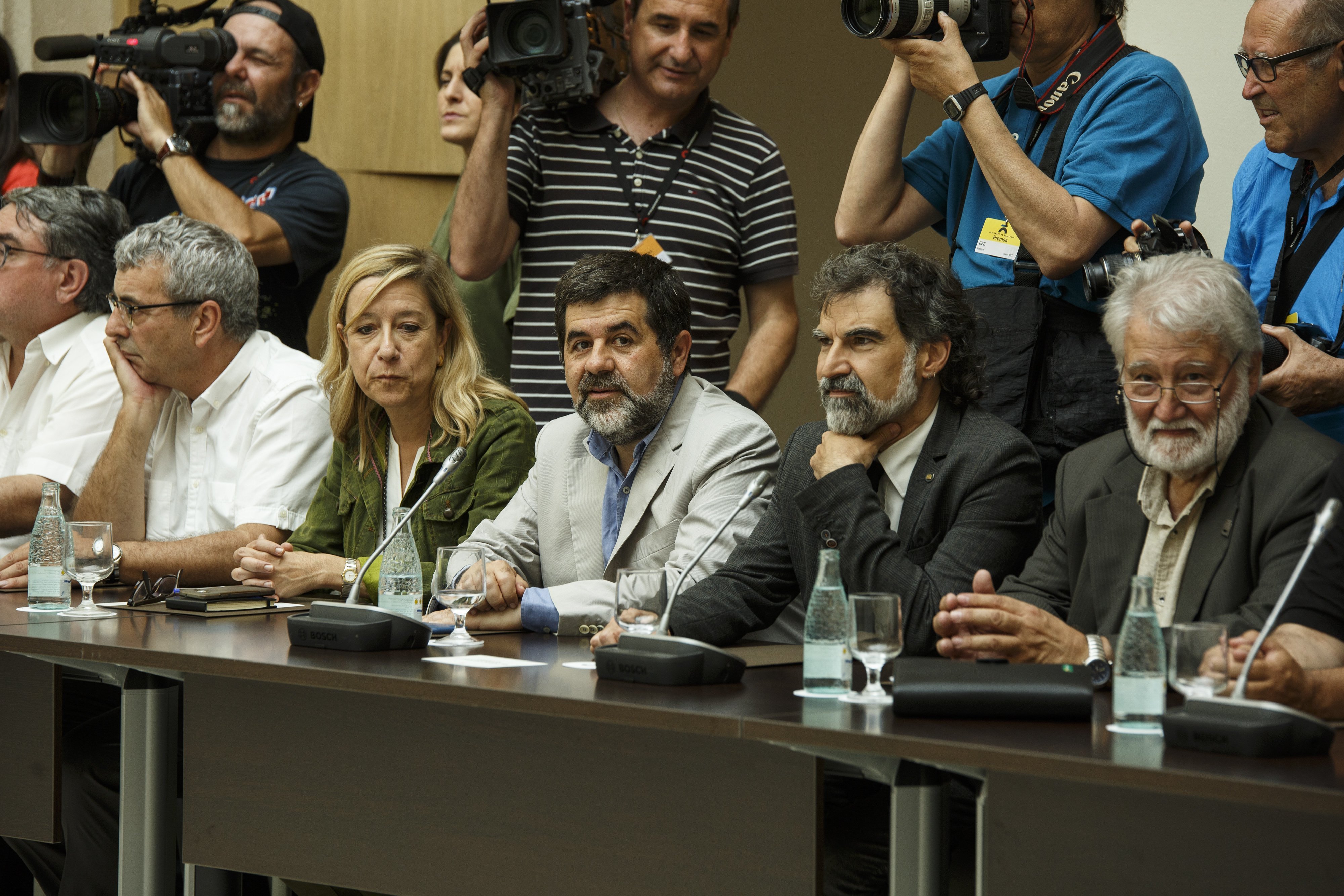The Catalan National Assembly (ANC) has asked the pro-independence parties for a political agreement that independence will go ahead if it obtains "more votes in favour than votes against" in the referendum "whatever the turnout recorded may be", in the face of a possible boycott on the part of the Cs, PP and PSC parties".
In an internal document from the organisation, which the Europa Press news agency had access to, they maintain that, facing the scenario of a potential boycott and since the proposed law for the referendum makes no reference to the question of turnout, "the establishment of a prior political consensus on this question between the pro-independence forces" is "absolutely necessary".
Thus, they call for the Catalan government and pro-independence deputies to publicly state that, while they will promote turnout as much as possible so it is as high as possible, the proposal to be voted on on 1 October vote will be implemented if it wins a majority of whatever the turnout ends up being.
According to the ANC, it is impossible to guess the size of a possible anti-independence boycott, so they believe it necessary for the government's strategy to be designed "to defend the verdict of the ballot boxes in any of the scenarios".
In their opinion, to assume that there will not be a boycott or that it will be insignificant is "mistaken management of the pre-referendum situation which, through an excess of confidence, could prove costly for the [independence] process".
As well as the arguments wielded by the Commission of Venice, they note the normality in the convocation of the 1 October referendum in not establishing a minimum turnout. There was no minimum in the referendum on the new Catalan Statute of Autonomy in 2006, which saw 49.5% turnout, nor in the Spanish referendum on the European constitution in 2005, which saw 41.77% turnout.
"In neither case did the fact that turnout did not reach 50% of the electoral register remove legitimacy from the result nor did it put in doubt its political or legal validity", they emphasised.
For the ANC, turnout is not a good indicator of the real societal interest created by a vote when there is a boycott on the part of those against the proposal: "To boycott is to adulterate the abstention position and the normal use of the democratic method".
In the case of Catalonia, they note that the turnout in elections that have been held in normal democratic conditions has been between 60 and 80% of the electoral roll, so the absolute majority of the valid votes cast has been, in all cases, about 30-40% of the census.
50% of the census?
For this reason, they question needing a turnout of 50% of the census to legitimise the result on 1 October, alleging that if the turnout turns out "abnormally low it would be because a large proportion of those who do not want independence, instead of expressing their opinion, 'no', at the ballot boxes, they would abstain to prevent" the 'yes' being perceived as having a legitimate majority.
"This would be, simply, fixing the rules of the democratic game", the ANC warns. They believe it would be legitimate to abstain, but not as a subterfuge to prevent or to alter the verdict of the vote.

